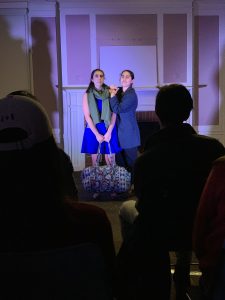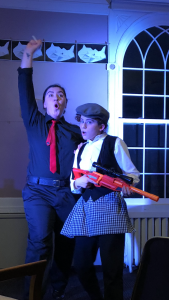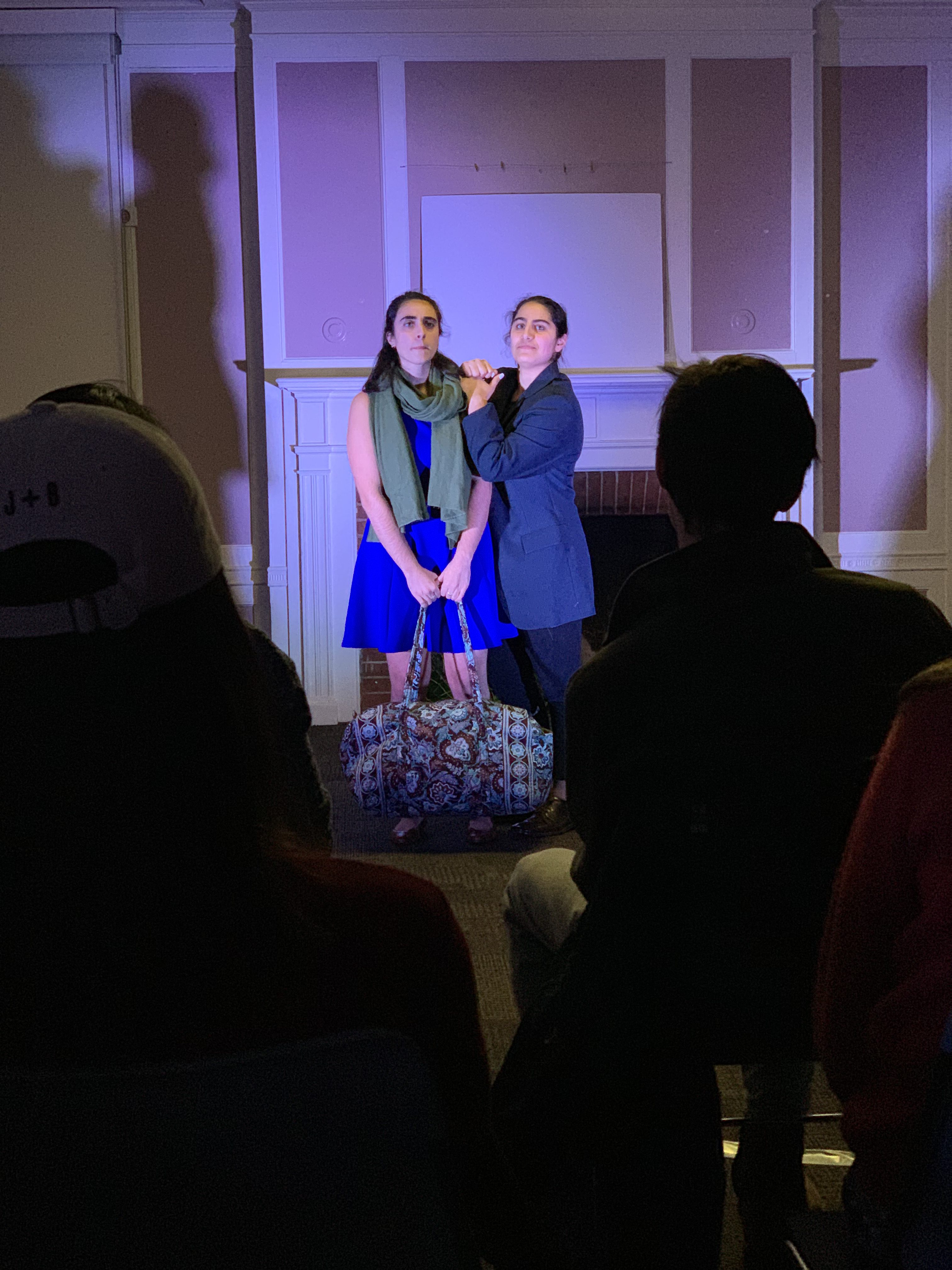French on Stage!
By Ali Friend (’19)
I originally took this course was because the description emphasized that it would give students the opportunity to practice the pronunciation of French words and phrases through acting, something that I was eager to do since I returned from studying abroad in Paris last semester. This course was also the first real acting one that I had ever taken at Wesleyan and in my life, and it was an interesting experience to take a different approach of learning French by trying methods that I was not accustomed to. Normally, this course studies various plays written by different French-language playwrights, where the final show focuses on one specific play (last year it was Eugene Ionesco’s piece Rhinoceros). Instead, this year we focused on one playwright in particular, Mohamed Kacimi, where the final show consisted of different scenes from four of his plays. Kacimi, born in El Hamel, Algeria, is an accomplished novelist and playwright who has written numerous pieces and works, where he portrays his ideas of French colonialism and universal division through themes such as violence, war, love, and plenty of biblical references. The first two-thirds of the course were dedicated to reading and analyzing the texts, which is similar to any other literary course on campus but it was the final portion of this class that was most memorable.
The last third involved preparing and practicing for the final performance, where we were assigned our roles, partners, the scene in which we were to act out, and so forth. After getting assigned one of the very first plays that we read at the beginning of the course, 1962, my initial reaction was excitement followed quickly by panic because unlike my talented partner who is an extraordinary actress, I came to the realization that I didn’t know how to act. I didn’t know where to start. Luckily, this course offers a variety of workshops and different exercises to help explore different acting techniques, such as a rigorous workshop with Clara McBride which helped define the role of an actor/actress and reassured that acting itself is just another form of self-expression. Other sessions usually included rehearsal that focused on character development, analytical readings of the scene, the relations between my own character and my partner’s, the “right” emotions implied in our designated scene, memorization and repetition of the script, and the correct pronunciation of the dialogue. While receiving critiques from the professor, my partner, other classmates, and the FLTA’s, it was also impressive that we had the chance to work with and receive critiques from the playwright himself, who had generously donated his time to come to Wesleyan and help us prepare for the final performance. Having doubts and trouble understanding my own character, I did have the chance to ask Kacimi more about his motivations for writing this piece and his reasons for creating a character with such complexity. An intense analysis of my character, the scene, and repetition of the script created a confidence to try new things while acting, which in turn helped me overcome other challenges that presented themselves later on, such as stage fright and improvisation. Since this course was very hands-on, from many hours of rehearsal, to picking the costume and props, to the final performance itself, I found myself constantly speaking French and trying different acting techniques, where I not only saw a progression in my speech but also a progression in my ability and in my confidence to be self-expressive through acting.
Overall, I think this course was fun and very constructive. I found progression through repetition, critique, and willingness to try something new and different.




